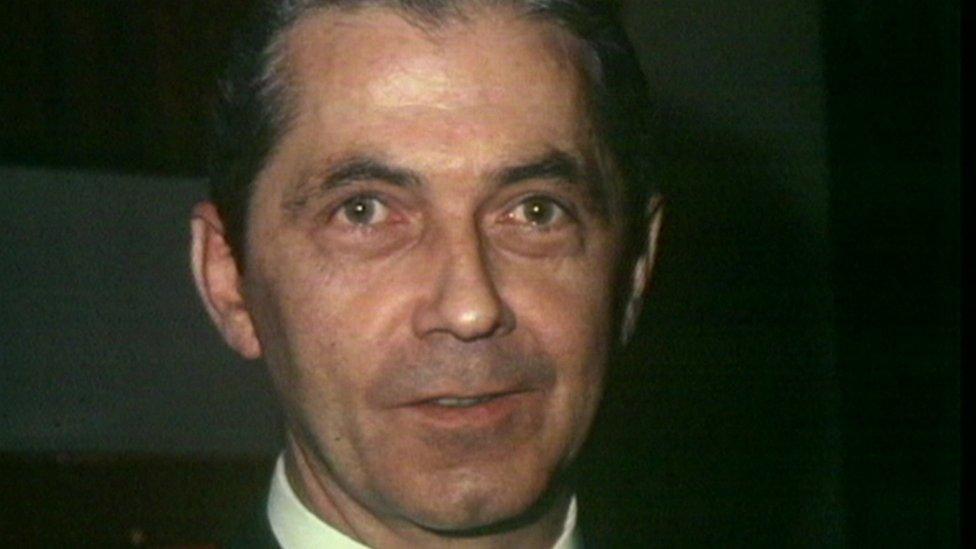Troubles pension: More than 40 applicants die before decisions made
- Published
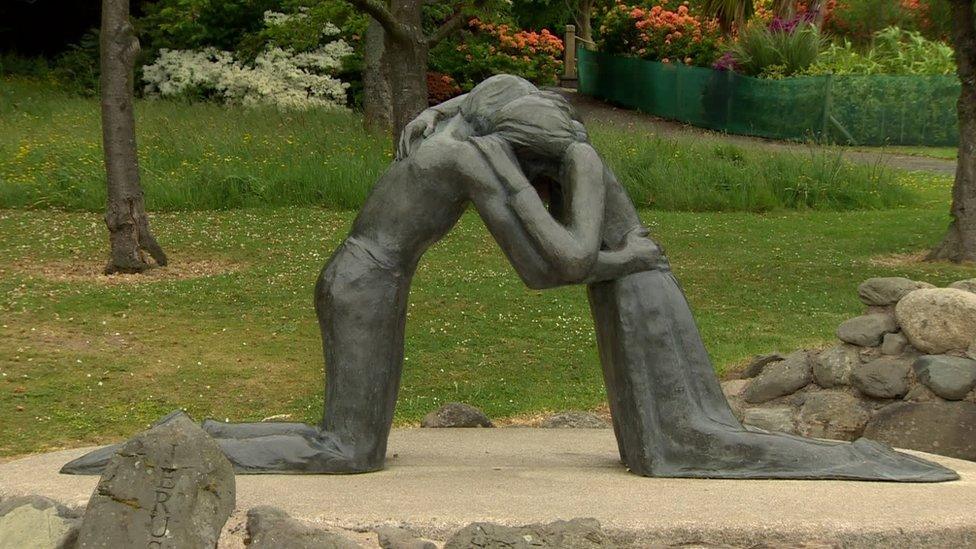
The scheme was set up to help people who suffered physically or psychologically during the Troubles
More than 40 people who applied to a Troubles victims pension scheme have died before any decision was made, figures obtained by BBC News NI reveal.
The scheme, opened in August 2021, offers payments to those who suffered physical or psychological injuries in the Troubles in Northern Ireland.
Of the more than 6,200 applications, decisions have been made on 955.
The board that administers the fund said it prioritises applications from terminally ill and older people.
Almost £32m has been paid out to victims so far, the Victims' Payment Board said.
But it said the process is "complex", with the passage of time making certain records required "difficult or impossible to retrieve".
A total of 43 applicants have died before a determination was made, according to figures obtained through a Freedom of Information (FoI) request.
One applicant died in the first year of the scheme, with the figure increasing to 14 in 2022 and 28 in 2023.
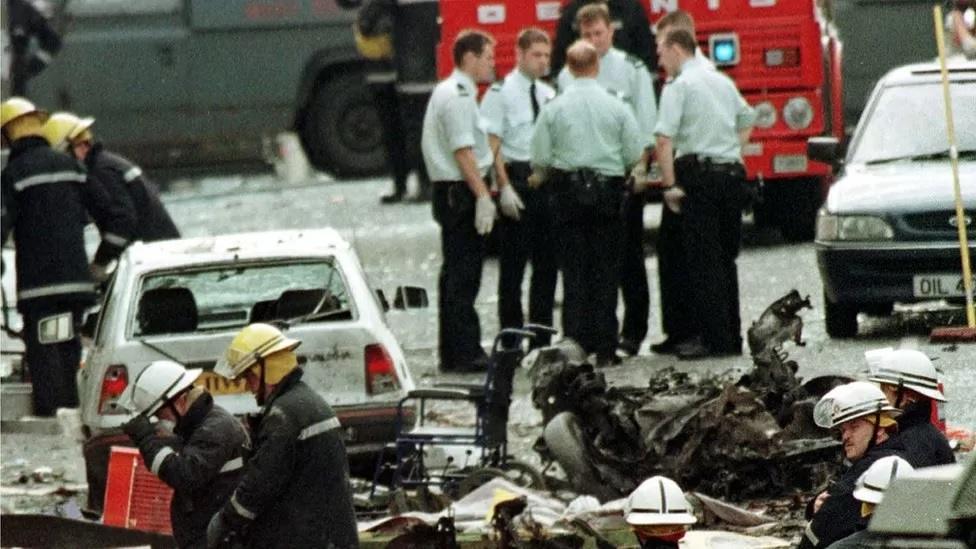
The Troubles was a period of conflict which lasted for 30 years and cost the lives of more than 3,500 people
In its FoI response, the board said that if an applicant dies, a partner or carer may be nominated to receive payments in their absence.
This would be for a period of 10 years beginning on the date of their death, except when a lump-sum payment has been made.
The figures emerged after the Commission for Victims and Survivors proposed that bereavement payments should be made to relatives of people killed during the Troubles, including those who were paramilitaries.
'It retraumatised me'
Noel Downey, who lost a leg after an IRA bomb exploded under his car in Lisnaskea, County Fermanagh, in 1990, applied for the Troubles pension more than two years ago.
The 60-year-old, from Maguiresbridge, said the application process and waiting on a decision has been "mentally draining".
"It was hard enough recalling my whole story of what happened again and looking at pictures and sending off information," he said.
"It basically retraumatised me and I'm still traumatised waiting and waiting on it."
He said it was "just terrible" that people have died while waiting on an outcome.
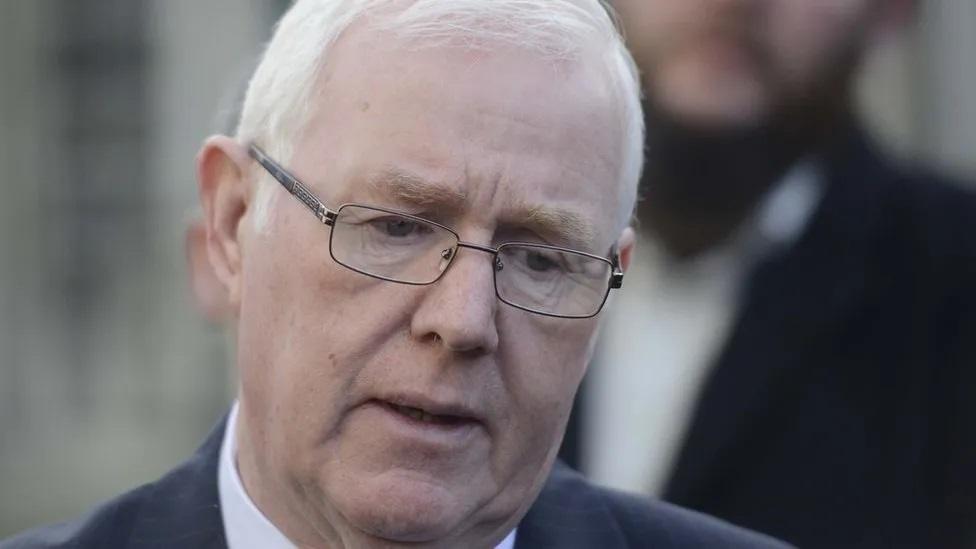
Eugene Reavey, who has submitted an application, criticised the speed of the process
Eugene Reavey, who lost three brothers in a loyalist paramilitary gun attack on 4 January 1976, described the pension application process as "very, very slow".
The 75-year-old said he submitted an application shortly after its launch but has not received any decision.
"I just can't understand it. I have members of my family who are over 80 - they're not going to live for long," he said.
Kenny Donaldson, director of the victims' group SEFF (South East Fermanagh Foundation), said some of the applicants who died were supported by the organisation.
He acknowledged the "challenges" and complexities faced by those administering the scheme.
"This said, we absorb significant frustration, and at times anger, from applicants who feel it is incredible that after two years they still have not received an outcome to their application," he added.
"We are working collaboratively with the Victims' Payment Board to raise and deal with issues and we are hopeful that some progress might be made."
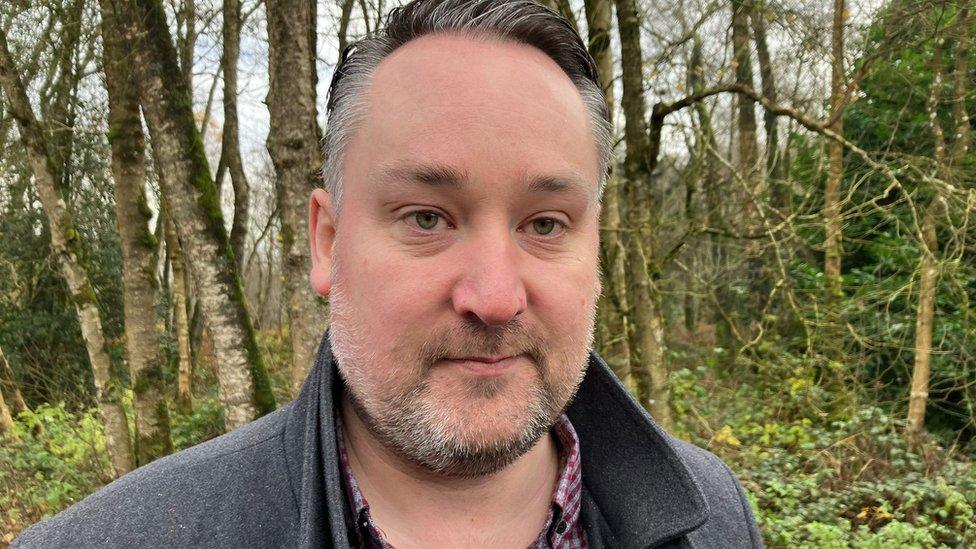
Kenny Donaldson runs a Troubles victims support group in County Fermanagh
Victims' support group the Wave Trauma Centre said it was "deeply regrettable" that people have died before a decision was made on their applications.
A spokesman said a significant cause of delays was the time taken to receive information required under the scheme from statutory agencies.
"In a case supported by Wave, for example, a piece of basic medical history took over four months to be produced," he added.
"It would help speed up the process if those asked to provide information did so in a timely fashion, though we understand that with the passage of time it may not be readily available or indeed may no longer exist."
The group also urged the Victims' Payment Board to keep its processes "under constant review to ensure that they operate as efficiently as possible".
Processes 'complex'
As of December 2023, a total of 6,209 applications were received by the Victims' Payments Board (VPB).
Of these, 955 determinations were made, with 630 applicants deemed eligible to receive a payment and 325 ineligible.
The board said it prioritises applications from those who are terminally ill or those who are over 80 years old, and works "as quickly as possible".
"We fully accept that the application process can be lengthy and is also an emotional time for many applicants and their families as they recall past traumatic events," a spokesman said.
He said the processes were "complex", adding: "Given the historical and sensitive nature of the subject matter, and the passage of time, it does make certain records difficult or impossible to retrieve.
"Many of the applications received relate to incidents that happened up to 50 years ago and one in three applications have multiple incidents.
"But the VPB remains committed to ensuring that the interests of victims are at the centre of everything it does."
Related topics
- Published2 January 2024
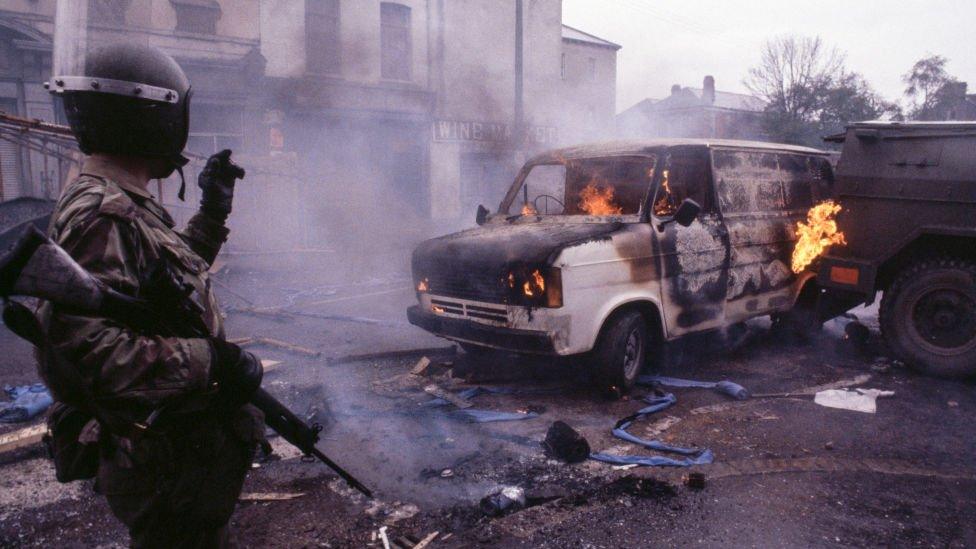
- Published23 December 2023
